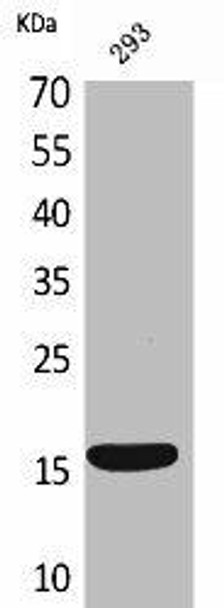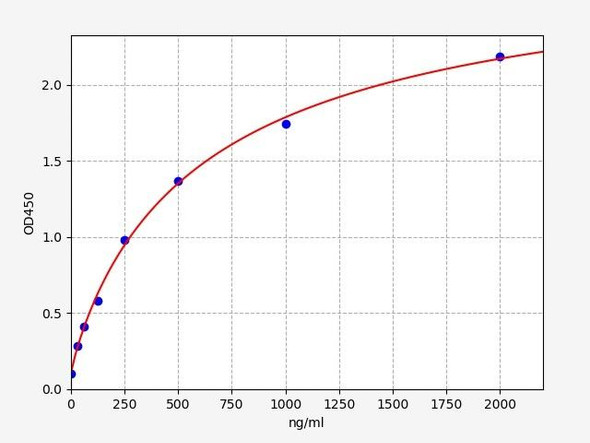Description
PSPN Antibody (PACO01995)
The PSPN Polyclonal Antibody (PAC001995) is a valuable tool for researchers studying PSPN, a protein involved in nerve regeneration and repair. This antibody, produced in rabbits, exhibits high reactivity with human samples and has been validated for use in immunohistochemistry applications. By targeting the PSPN protein, this antibody allows for the visualization and analysis of PSPN expression in various tissues, making it ideal for investigations in neurobiology and regenerative medicine.
PSPN, also known as persephin, is a neurotrophic factor that plays a crucial role in promoting the survival and growth of nerve cells. Its potential therapeutic implications in nerve injury and degenerative disorders make it a promising target for research in neuroscience and neurology. By unraveling the mechanisms of PSPN action, researchers can enhance our understanding of nerve regeneration processes and develop new treatment strategies for neurological conditions.
| Antibody Name: | PSPN Antibody |
| Antibody SKU: | PACO01995 |
| Size: | 50ug |
| Host Species: | Rabbit |
| Tested Applications: | ELISA, WB |
| Recommended Dilutions: | WB:1:500-1:2000 |
| Species Reactivity: | Human |
| Immunogen: | synthesized peptide derived from the C-terminal region of human PSP. |
| Form: | Liquid |
| Storage Buffer: | Liquid in PBS containing 50% glycerol, 0.5% BSA and 0.02% sodium azide. |
| Purification Method: | The antibody was affinity-purified from rabbit antiserum by affinity-chromatography using epitope-specific immunogen. |
| Clonality: | Polyclonal |
| Isotype: | IgG |
| Conjugate: | Non-conjugated |
| Synonyms: | PSPN; Persephin; PSP |
| UniProt Protein Function: | PSPN: Exhibits neurotrophic activity on mesencephalic dopaminergic and motor neurons. Belongs to the TGF-beta family. GDNF subfamily. |
| UniProt Protein Details: | Protein type:Secreted; Secreted, signal peptide Chromosomal Location of Human Ortholog: 19p13.3 Cellular Component: extracellular space Molecular Function:growth factor activity; receptor binding Biological Process: nervous system development; axon guidance; central nervous system development; ureteric bud branching |
| NCBI Summary: | The protein encoded by this gene is a neurotrophic factor, belonging to the GDNF family. Neurotrophic factors are important for the proper development and maintenance of the nervous system. These factors promote neuronal survival and can prevent the neuronal degeneration associated with injury, toxin exposure, or neurodegenerative disease. The encoded protein has amino acid similarity to its other family members, glial cell line-derived neurotrophic factor and neurturin. This gene product promotes the survival of ventral midbrain dopaminergic neurons in culture and prevents their degeneration after 6-hydroxydopamine treatment in vivo. [provided by RefSeq, Jul 2008] |
| UniProt Code: | O60542 |
| NCBI GenInfo Identifier: | 7531178 |
| NCBI Gene ID: | 5623 |
| NCBI Accession: | O60542.1 |
| UniProt Related Accession: | O60542 |
| Molecular Weight: | 16,600 Da |
| NCBI Full Name: | Persephin |
| NCBI Synonym Full Names: | persephin |
| NCBI Official Symbol: | PSPN |
| NCBI Official Synonym Symbols: | PSP |
| NCBI Protein Information: | persephin |
| UniProt Protein Name: | Persephin |
| Protein Family: | Persephin |
| UniProt Gene Name: | PSPN |
| UniProt Entry Name: | PSPN_HUMAN |











